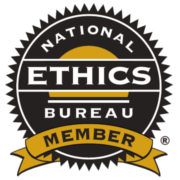ORGANIZING YOUR RESOURCES FOR RETIREMENT
Retirement should provide you the financial freedom to do all the things you’ve always wanted to do in the years after you’ve finished your working life.
However, you’ll need a plan to carefully execute the financial side of things before you can start checking things off of your bucket list.
Retirement lifestyle planning encompasses the non-financial elements of retirement and life, things like traveling, spending time with family, partaking in new hobbies, engaging socially and more. Carefully setting goals for how you’ll best accomplish this is an important factor to take into consideration when preparing for retirement.
Without the framework of an 8-hour, everyday job to provide structure to your life, you’re going to be left with no choice but to find new ways to spend your time and give yourself purpose, and some retirees will have more trouble accomplishing this than others.
Though, with more information available today than ever on retirement lifestyle options, it’s easier than ever to research and find ways to make your retirement meaningful while also leaving plenty of time to relax and doing all the adventuring you dreamed of during the years of hard work.
Although you can plan years in advance, you likely won’t have a perfect read on things until you actually have reached retirement and become entrenched in that lifestyle. The baby boomer generation tends to have a very hardworking mentality, which makes it difficult for many of them to disassociate with what they’ve done for a living. If you are within this generation and nearing retirement, the very attitude that has likely served you very well throughout your career could now make for an uncomfortable first few months or even years away from work.
Most retirees do not have a sound plan for how they’ll adjust to life with no constant paycheck coming in. The shock from going from the constant flow of income to becoming responsible for transforming their nest egg into a steady stream of money to live off can be a big transition for many. However, just as stressful an issue for retirees may be how they fill their time. Continuing to work, whether you stay at your current job and scale back your hours, or find new work geared more toward something that you have a passion for, can be great ways to ease into
Retirement while generating supplemental income. In fact, many retirees are able to delay accepting their Social Security benefit by continuing to work after their professional career comes to an end. Doing so will then increase your monthly benefit once you do decide to accept at a later date. In addition, continuing to work can help you remain active and help you stay mentally sharp, and keep you from becoming sedentary.
Exercising has proven to be a great source of mental and physical release, and gives you a multi-pronged approach to improving your retirement lifestyle. Not only will you have something to help fill the hours of your week and give yourself new goals to work toward, but you’ll likely be improving your health and longevity of your life inthe process.
Another great way to fill your time and gain a sense of satisfaction is to volunteer in your community. In reading about retirement planning, we oftentimes talk about filling the income gap from your working life to your non-working life, but these are great ways to bridge the psychological gaps you’ll also face!
Lastly, ask yourself how you want to be remembered. Think about your legacy, not only in terms of your wealth and the inheritance you want to pass on, but what you accomplished in other aspects of life, like family, community, spirituality and other causes. Finding the perfect balance once you reach retirement won’t be as simple as it may seem during your working years, but this is simply the next challenge for you to overcome.
For additional information about this topic or if you have any other questions regarding retirement, please do not hesitate to contact us at 775-674-2223.

